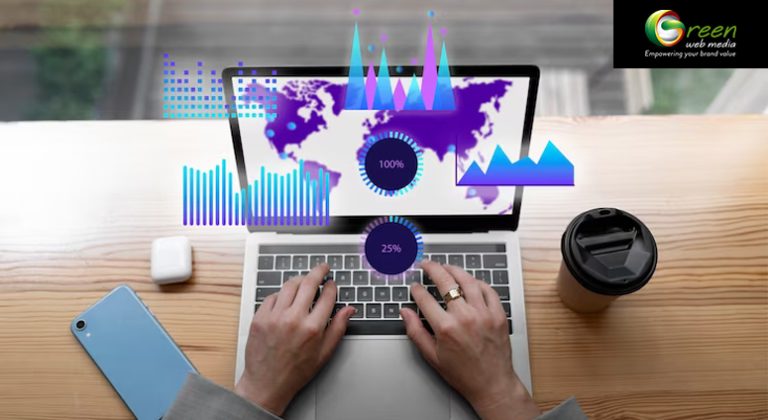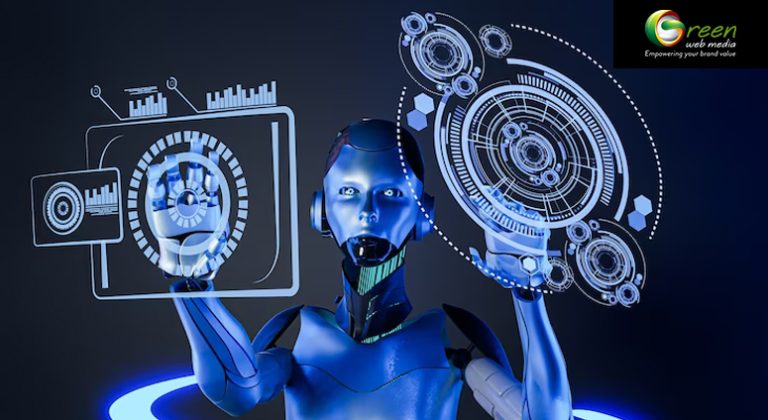How AI Can Help You Stay Ahead of the Latest SEO Trends and Best Practices?

Search Engine Optimisation (SEO) is an ever-changing field, with new trends and best practices emerging every year. Staying ahead of these changes is crucial for businesses that want to maintain a strong online presence and drive traffic to their websites. Fortunately, advances in Artificial Intelligence (AI) are making it easier to stay on top of the latest SEO trends and best practices. However, it is imperative to tap into the power of both SEO and AI, thus accelerating your business’ bottom lines.
In this blog post, we’ll explore how AI can help you optimize your website for search engines and drive more traffic.
Knowing About The SEO Best Practices
SEO refers to optimizing your website to rank higher on search engine results pages (SERPs). It involves using various techniques to increase the quality and quantity of organic traffic to your website. SEO is essential for any online business because it can increase your website’s visibility, drive more traffic, and generate more leads and conversions.
There are many SEO practices, including on-page optimisation, content creation, keyword research, link building, and analytics. These practices aim to improve your website’s structure, content, and performance to increase its relevance to users and search engines.
It’s right here that AI can help you take your SEO strategies to the next level, which brings us to the next segment.

AI in SEO
Artificial intelligence (AI) is a set of technologies that enable computers to perform tasks that typically require human intelligence, such as learning, reasoning, and problem-solving. AI can be used to improve the effectiveness and efficiency of SEO practices.
AI can help SEO by analyzing large amounts of data, identifying patterns and trends, and automating time-consuming tasks. AI can also provide insights and recommendations that can help optimize your website for search engines and users.
AI-based SEO Strategies and Tools
There are various AI-based SEO tools that can help you optimize your website for search engines and users. These tools help you plan and maximize several SEO strategies. Here, we have discussed the strategies along with the tools needed to execute the tasks:
1. Keyword research
Keyword research involves identifying users’ words and phrases to search for your products or services. AI-based keyword research tools can analyze search queries and identify relevant keywords that can help improve your website’s ranking. Some examples of AI-based keyword research tools are Google Keyword Planner, Ahrefs, and SEMrush.
For instance, SEMrush is a popular AI-based keyword research tool that can provide insights into the top-performing keywords in your industry, the difficulty level of ranking for those keywords, and their search volume. It can also offer suggestions on related keywords that can improve your website’s visibility.

Real-Life Reference Of Ai-Based Keyword Research Tools
A company that has successfully used AI-based keyword research tools is HubSpot. HubSpot’s Content Strategy Tool uses AI to generate content ideas based on relevant keywords and topics. It also provides insights into the competition for those keywords and their ranking capabilities.
2. Content optimisation
Content optimization involves creating high-quality, relevant, and engaging content that can attract and retain users. AI-based content optimisation tools can analyze your content and provide insights and recommendations on how to improve it for search engines and users. Some examples of AI-based content optimisation tools are Yoast SEO, MarketMuse, and Clearscope.
For example, Yoast SEO is a WordPress plugin that can help optimize your content for search engines and users. It can provide real-time suggestions on keyword usage, readability, and other factors that can improve your content’s quality and relevance.
Real-Life Example
A company that has successfully used AI-based content optimisation tools is IBM. IBM’s Watson Content Hub uses AI to analyze content and provide insights into its tone, readability, and relevance. It also provides suggestions for improving content and automates the content creation process.
3. On-page optimisation
On-page optimization involves optimizing your website’s structure, content, and other elements to improve its relevance and usability for search engines and users. AI-based on-page optimisation tools can analyze your website and provide recommendations on how to optimize it for search engines and users. Some AI-based on-page optimization tools examples are Siteimprove, DeepCrawl, and Screaming Frog.
For instance, Siteimprove is an AI-based on-page optimization tool that can analyze your website’s structure, content, and other elements to identify areas that need improvement. It can provide insights and recommendations on factors such as broken links, duplicate content, and accessibility issues that can affect your website’s ranking.
4. Link building
Link building involves acquiring links from other websites to your website. AI-based link-building tools can analyze your website and identify potential link opportunities that can improve your website’s authority and relevance.
Some examples of AI-based link-building tools are BuzzStream, Pitchbox, and NinjaOutreach.
For example, BuzzStream is an AI-based link-building tool that can help you identify and track potential link opportunities. It can provide insights into websites relevant to your industry, their authority and credibility, and their linking habits.
Companies using AI-based link-building tools
HubSpot is an inbound marketing and sales software company that uses an AI-based link-building tool called Databox to improve its backlink strategy. Databox analyzes HubSpot’s link profile and provides recommendations on which websites to target for backlinks. The tool also monitors the success of their link-building efforts and provides insights on which strategies are working best.

AI in Analytics
AI can help in analytics by automating data collection, analysis, and reporting and providing insights and recommendations that can improve website performance.
AI-based analytics tools can analyze large amounts of data, identify patterns and trends, and provide insights and recommendations that can help optimize website performance. Some examples of AI-based analytics tools are Google Analytics, Kissmetrics, and Mixpanel.
Integration of AI in analytics
AI can enhance the capabilities of analytics tools by providing more accurate and detailed insights into website visitor behavior. AI algorithms can analyze vast amounts of data to identify patterns and relationships that human analysts might miss. AI can also provide real-time insights and predictions about website usage, enabling owners to make informed decisions quickly.
Some of the advantages of using AI in analytics include the following:
- Real-time insights:AI can analyze data in real time, providing up-to-date insights into user behavior and website performance.
- Predictive analytics:AI can analyze historical data and use machine learning algorithms to make predictions about future trends and user behavior.
- Personalisation:AI can analyze user behavior and provide personalized recommendations and content based on their preferences and interests.
AI in analytics: Real-life Application
Sephora is a cosmetics retailer that uses AI-based analytics tools to improve its website performance. Sephora uses an AI-powered tool called ModiFace to provide personalized makeup recommendations to customers based on their skin tone and features.
The tool uses computer vision algorithms to analyze customer photos and recommend products that match their skin tone and features. Sephora also uses AI-based analytics tools to analyze website visitor behavior and provide insights on popular products and content.

Future of AI in SEO
The future of AI in SEO is promising. Advancements in AI technology, such as natural language processing (NLP), machine learning (ML), and neural networks, can enhance AI-based SEO tools’ effectiveness and efficiency.
AI can also significantly impact SEO, such as personalized search results, voice search, and predictive search. AI can also help in improving website performance by automating tasks, reducing errors, and improving website speed and accessibility.
Predictions for the future of AI in SEO include:
- More personalized search results.
- Voice search optimization.
- AI-based content creation.
- AI-based chatbots.
As AI technology advances, its impact on SEO will likely become even more significant. Some of the advancements that we can expect to see in the future include the following:
- Natural language processing:AI will better understand natural language queries and provide more accurate and relevant search results.
- Image and video recognition:AI will become better at recognising and analyzing photos and videos, making it easier for search engines to optimize these types of content.
- Voice search optimisation:AI will become better at understanding and analyzing voice queries, making optimizing websites for voice search easier.
Overall, AI is set to play an increasingly important role in SEO in the coming years.
Concluding Remarks
AI can help you stay ahead of the latest SEO trends and best practices by providing insights and recommendations, automating tasks, and improving website performance. AI-based SEO tools, such as keyword research, content optimisation, on-page optimisation, and link building, can improve website relevance and visibility.
The future of AI in SEO is promising, with advancements in AI technology that can enhance SEO practices’ effectiveness and efficiency.
Businesses can optimize their websites for search engines, improve their rankings on SERPs, and gain valuable insights into user behavior and website performance using AI-based tools and analytics. As AI technology continues to advance, its impact on SEO is likely to become even more significant, making it more critical than ever for businesses to embrace this technology and stay ahead of the curve.





